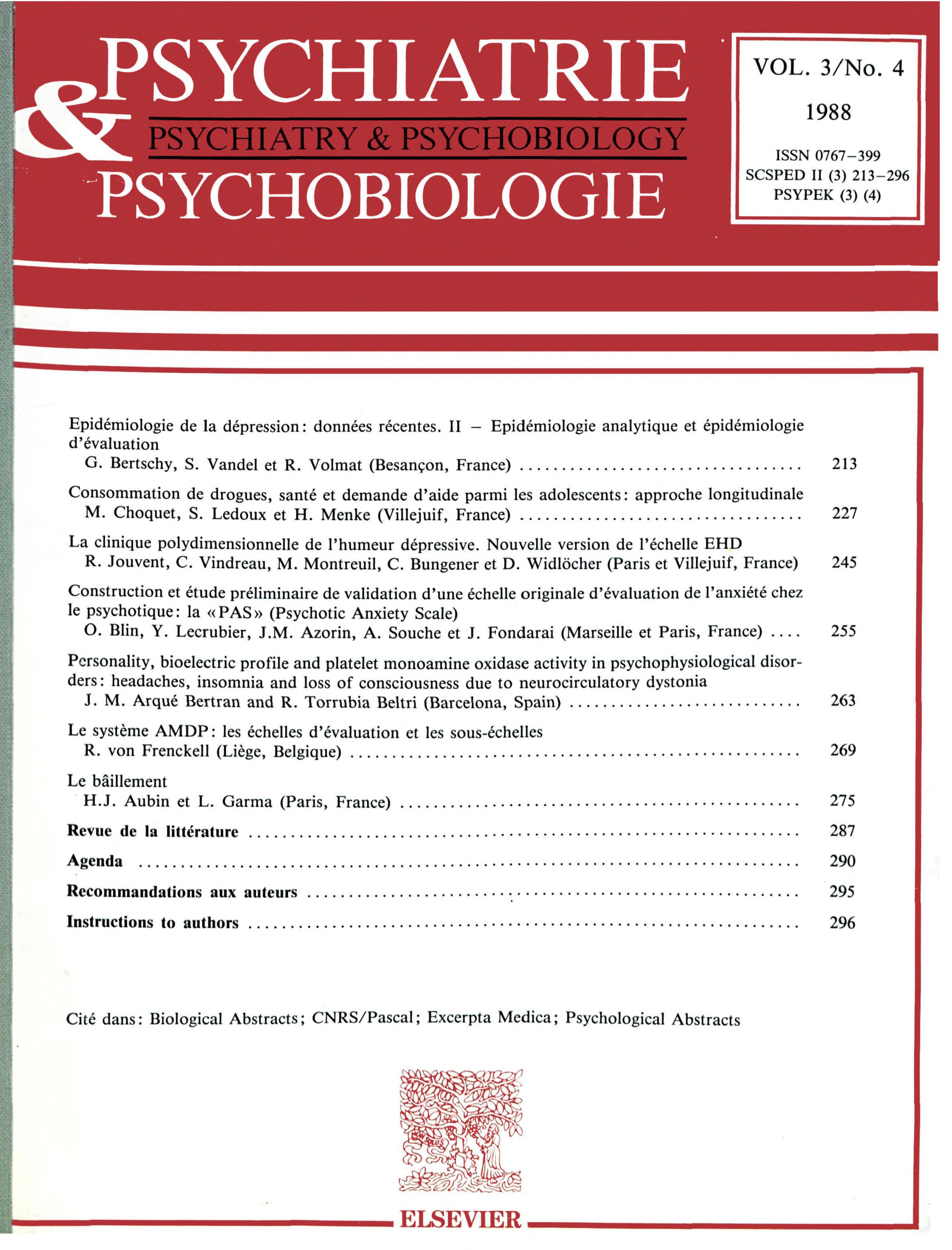No CrossRef data available.
Article contents
La respuesta inicial al fármaco activo y al placebo predice la evolución del tratamiento antidepresivo
Published online by Cambridge University Press: 12 May 2020
Resumen
En este estudio examinamos si el cambio clínico inicial (CCI) y la respuesta subjetiva inicial (RSI) predicen la evolución de la farmacoterapia antidepresiva, y si el CCI y la RSI reflejan acciones farmacológicas específicas o un efecto placebo como predictores. Cuarenta pacientes con depresión mayor fueron tratados con tres antidepresivos diferentes durante 4 semanas. Se tomaron como criterios de evolución el cambio clínico global y la respuesta subjetiva final. Los pacientes fueron asignados al azar a dos subgrupos en un diseño doble ciego. Inicialmente, un grupo recibió el fármaco activo y el otro, placebo. Después, se dio a todos el fármaco activo. Se encontraron correlaciones significativas entre el CCI y la RSI y al menos uno de los criterios de evolución en la muestra total y en cada subgrupo. Los resultados muestran que el CCI y la RSI pueden ser predictores significativos de la evolución. El valor predictivo del CCI y la RSI no se debe a efectos farmacológicos iniciales, sino a factores de tratamiento no específicos.
- Type
- Artículo Original
- Information
- Copyright
- Copyright © European Psychiatric Association 1997
Footnotes
Priebe S, Bröker M. Initial response to active drug and placebo predicts outcome of antidepressant treatment. Eur Psychiatry 1997; 12: 28-33.


